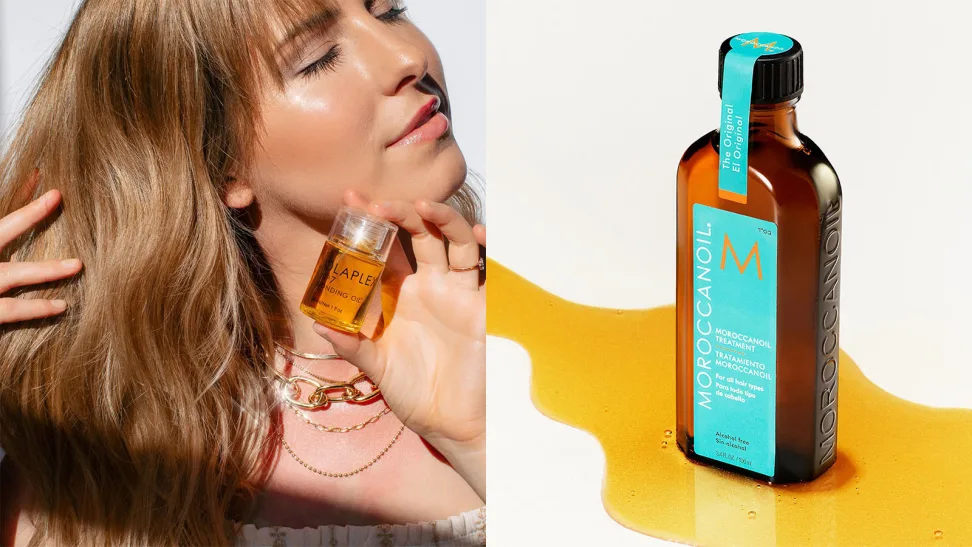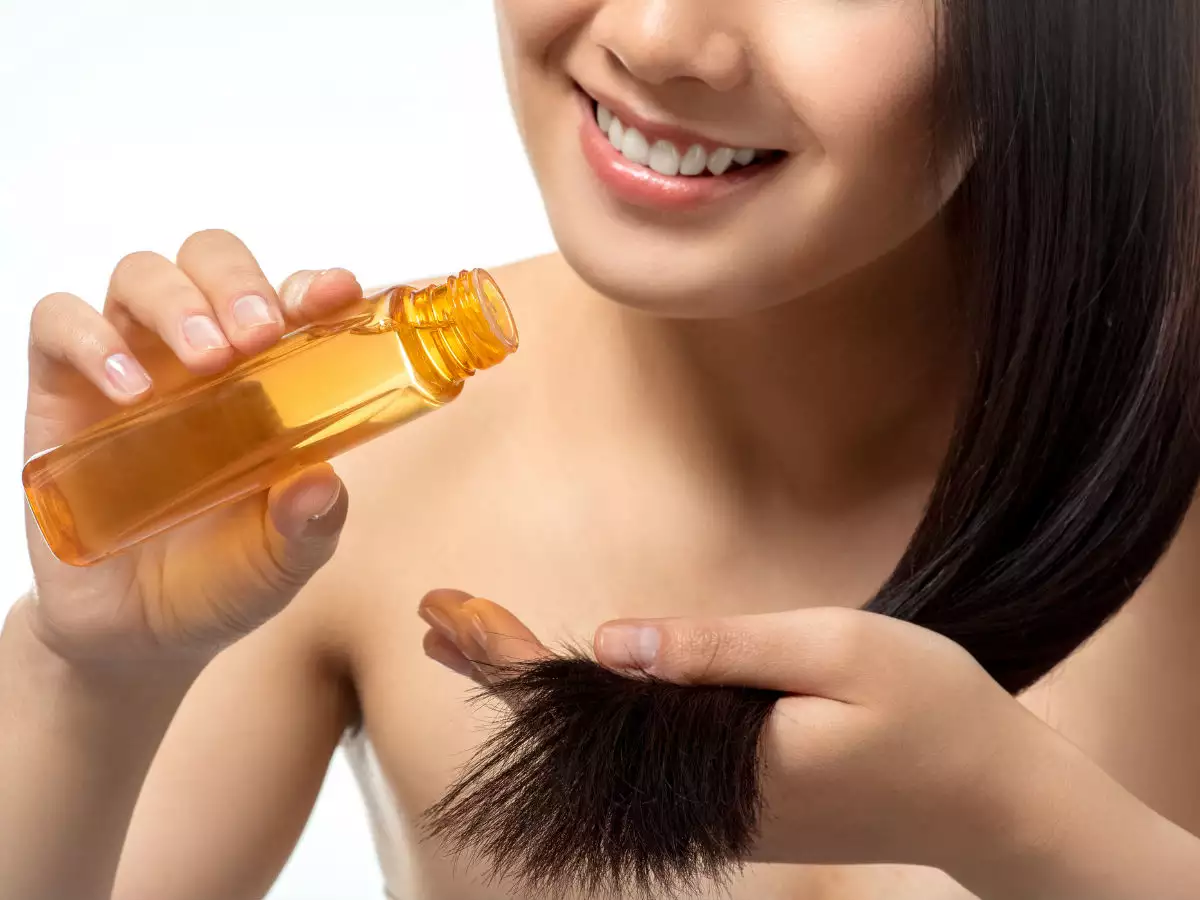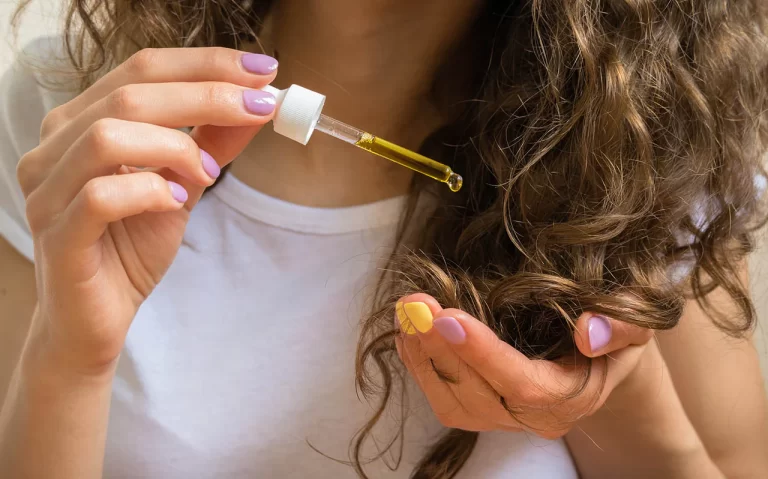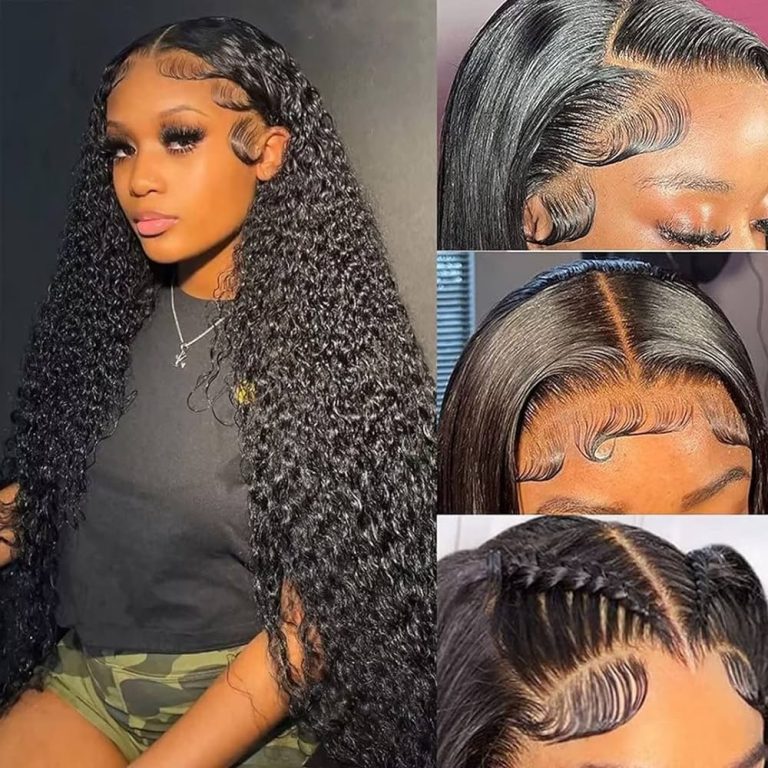
Silky Strands: Best Oil for Hair
Unlocking the Secret to Luscious Locks: Top Oils for Healthy Hair
Hair health remains a top priority for many individuals. Natural oils offer a solution to various hair concerns. These oils nourish the scalp and strengthen hair follicles. They promote healthy hair growth from the roots. Understanding the best oils for hair is crucial. This knowledge can transform dull, lifeless hair into a vibrant mane. The right oil can make a significant difference in hair health and appearance.
The Science Behind Hair Health and Natural Oils
Hair growth occurs in three stages: anagen, catagen, and telogen. The anagen phase is crucial for hair growth. It determines the length and thickness of hair. Natural oils can extend this phase. They nourish hair follicles and stimulate growth. These oils contain essential nutrients. Fatty acids, vitamins, and minerals play key roles.
They improve scalp health and hair strength. Healthy hair follicles produce stronger, thicker hair. Natural oils also balance scalp pH levels. This creates an optimal environment for hair growth. Understanding these mechanisms helps in choosing the right oil.
Coconut Oil: The Versatile Hair Elixir
Coconut oil stands out as a top choice for hair care. It penetrates the hair shaft deeply. This unique ability sets it apart from other oils. Coconut oil reduces protein loss in hair. It strengthens hair from within. The oil’s lauric acid content fights fungal infections. It keeps the scalp healthy and clean. Regular use of coconut oil improves hair texture.
It adds shine and reduces breakage. Apply warm coconut oil to the scalp. Massage gently for best results. Leave it overnight for deep conditioning. Coconut oil suits most hair types. It’s particularly beneficial for dry, damaged hair. The oil’s antimicrobial properties prevent dandruff. This creates an ideal environment for hair growth.
Argan Oil: The Moroccan Miracle for Hair Health
Argan oil, often called “liquid gold,” originates from Morocco. It’s rich in vitamin E and fatty acids. These nutrients are essential for hair health. Argan oil moisturizes the scalp deeply. It prevents dryness and flakiness. The oil’s antioxidants protect hair from environmental damage. It shields against UV rays and heat styling. Argan oil improves hair elasticity.
This reduces breakage and split ends. Regular use leads to smoother, more manageable hair. The oil doesn’t weigh hair down. It’s ideal for all hair types, especially frizzy or curly hair. Apply a few drops to damp hair after washing. Focus on the ends for extra nourishment. Argan oil can also be used as a leave-in treatment. It provides ongoing protection throughout the day. The oil’s lightweight nature allows for frequent use.
Jojoba Oil: The Scalp’s Best Friend
Jojoba oil closely resembles human sebum. This similarity makes it highly effective for scalp health. The oil balances scalp oil production. It prevents both dryness and excessive oiliness. Jojoba oil unclogs hair follicles. This action promotes healthy hair growth. The oil’s anti-inflammatory properties soothe scalp irritation. It creates a healthy environment for hair to thrive. Jojoba oil is rich in vitamins and minerals. These nutrients strengthen hair from the roots.
Regular use improves hair thickness and shine. The oil is lightweight and non-greasy. It’s suitable for all hair types, including oily scalps. Apply jojoba oil directly to the scalp. Massage gently to improve absorption. Use it as a pre-shampoo treatment for best results. Jojoba oil can also be added to regular shampoo. This provides ongoing nourishment during hair washing. The oil’s versatility makes it a popular choice for hair care routines.
Castor Oil: The Thick and Lustrous Hair Promoter
Castor oil has gained popularity for its hair-thickening properties. It contains ricinoleic acid, a unique compound. This acid improves blood circulation in the scalp. Enhanced blood flow nourishes hair follicles. Castor oil also has antimicrobial and anti-inflammatory properties. It combats scalp infections that hinder hair growth.
The oil’s thick consistency coats hair strands. This coating protects hair from damage and breakage. Regular use of castor oil increases hair density. It makes hair appear fuller and more voluminous. Apply castor oil directly to the scalp. Massage it in circular motions. Leave it on for at least an hour before washing. For best results, use castor oil weekly. Its potent nature makes it suitable for all hair types. Castor oil works wonders for those with thin or fine hair.
Olive Oil: The Mediterranean Secret for Healthy Hair
Olive oil offers numerous benefits for hair health. It’s rich in antioxidants and vitamin E. These nutrients protect hair from oxidative stress. Olive oil deeply moisturizes dry hair and scalp. It prevents flakiness and reduces dandruff. The oil’s emollient properties smooth the hair cuticle. This results in shinier, softer hair. Olive oil can penetrate the hair shaft.
It strengthens hair from within. Regular use improves hair elasticity. This reduces breakage and split ends. Apply warm olive oil to damp hair. Leave it on for 30 minutes before washing. For deep conditioning, leave it overnight. Olive oil suits all hair types. It’s especially beneficial for dry, coarse hair. The oil can also protect hair from heat damage. Apply a small amount before using styling tools.

Avocado Oil: The Nutrient-Rich Hair Nourisher
Avocado oil is packed with nutrients for hair health. It contains vitamins A, D, E, and B6. These vitamins promote healthy hair growth. Avocado oil is rich in monounsaturated fatty acids. These fats deeply moisturize hair and scalp. The oil’s high oleic acid content prevents hair breakage. It improves hair strength and elasticity. Avocado oil has natural sunscreen properties.
It protects hair from UV damage. The oil’s minerals nourish hair follicles. This promotes thicker, healthier hair growth. Apply avocado oil to damp hair. Massage it into the scalp gently. Leave it on for 20-30 minutes before washing. For deep treatment, mix with honey and leave overnight. Avocado oil suits all hair types. It’s particularly effective for dry, damaged hair. The oil can also tame frizz and add shine.
Grapeseed Oil: The Lightweight Hair Tamer
Grapeseed oil offers unique benefits for hair care. It’s lightweight and easily absorbed. This quality makes it suitable for all hair types. Grapeseed oil is rich in vitamin E and linoleic acid. These nutrients strengthen hair follicles. The oil has astringent properties. It helps regulate oil production in the scalp. Grapeseed oil adds shine without weighing hair down.
It improves overall hair appearance. The oil’s antioxidants protect hair from damage. It shields against environmental stressors. Grapeseed oil moisturizes hair deeply. It prevents dryness and brittleness. Apply grapeseed oil directly to the scalp. Massage gently to improve absorption. Use it as a leave-in treatment for ongoing nourishment. Grapeseed oil can be mixed with other essential oils. This combination enhances its hair care benefits.
Almond Oil: The Vitamin-Rich Hair Strengthener
Almond oil is a powerhouse of nutrients for hair. It’s rich in vitamin E, magnesium, and omega-3 fatty acids. These elements promote hair strength and growth. Almond oil deeply moisturizes the scalp. It prevents dryness and flakiness. The oil’s high protein content strengthens hair strands. This reduces breakage and split ends. Almond oil improves hair elasticity.
It makes hair more resistant to damage. Regular use results in smoother, shinier hair. The oil can also tame frizz and flyaways. Apply almond oil to damp hair and scalp. Massage gently to stimulate blood flow. Leave it on for an hour before washing. For intensive treatment, leave it overnight. Almond oil suits all hair types. It’s especially beneficial for dry or damaged hair.
Rosemary Oil: The Stimulating Essence for Hair Growth
Rosemary oil is renowned for its hair growth-stimulating properties. It increases cellular metabolism. This action speeds up hair growth. The oil improves blood circulation in the scalp. Enhanced blood flow nourishes hair follicles. Rosemary oil prevents premature graying. It slows down the aging process of hair. The oil’s antiseptic properties keep the scalp healthy. It prevents dandruff and other scalp issues. Rosemary oil strengthens hair roots.
This reduces hair fall and thinning. Regular use promotes thicker, fuller hair growth. The oil has a pleasant, invigorating scent. It provides aromatherapy benefits during application. Mix rosemary oil with a carrier oil before use. Apply the mixture to the scalp and massage gently. Leave it on for at least 30 minutes before washing. Use rosemary oil 2-3 times a week for optimal results.
Peppermint Oil: The Cooling Stimulant for Hair Follicles
Peppermint oil offers a refreshing approach to hair care. It has a strong cooling effect on the scalp. This sensation increases blood circulation. Improved blood flow stimulates hair follicles. Peppermint oil contains menthol. Menthol penetrates deeply into hair follicles. It promotes thicker, healthier hair growth. The oil has antimicrobial properties. It keeps the scalp clean and free from infections. Peppermint oil balances oil production in the scalp.
This balance creates an ideal environment for hair growth. The oil’s invigorating scent reduces stress. Stress reduction positively impacts hair health. Apply diluted peppermint oil to the scalp. Massage gently for several minutes. The tingling sensation indicates increased blood flow. Use peppermint oil 2-3 times a week. Always dilute it with a carrier oil to prevent irritation.
Tea Tree Oil: The Purifying Agent for Scalp Health
Tea tree oil plays a crucial role in promoting hair health. It has powerful antimicrobial properties. These properties combat scalp infections. Tea tree oil unclogs hair follicles. Clear follicles allow for better hair growth. The oil regulates sebum production. Balanced oil levels create a healthy scalp environment. Tea tree oil reduces inflammation.
It soothes irritated scalps. The oil’s purifying nature prevents dandruff. Dandruff-free scalps promote healthier hair growth. Tea tree oil stimulates hair follicles. This stimulation can lead to increased hair growth. Always dilute tea tree oil before use. Mix it with a carrier oil for safe application. Massage the mixture into the scalp gently. Use tea tree oil treatments 1-2 times a week. The oil is particularly beneficial for oily or dandruff-prone scalps.
Lavender Oil: The Soothing Elixir for Hair Care
Lavender oil offers multiple benefits for hair health. It has powerful antimicrobial properties. These properties keep the scalp healthy and clean. Lavender oil reduces stress and anxiety. Stress reduction positively impacts hair growth. The oil improves blood circulation in the scalp. Enhanced blood flow nourishes hair follicles. Lavender oil balances sebum production. This balance prevents both dryness and oiliness.
The oil’s calming scent promotes relaxation. Relaxation contributes to overall hair health. Lavender oil strengthens hair follicles. Stronger follicles produce healthier hair. Mix lavender oil with a carrier oil before application. Massage the mixture into the scalp gently. Leave it on overnight for deep nourishment. Use lavender oil 2-3 times a week for best results. The oil suits all hair types and is particularly beneficial for stressed scalps.

Combining Oils for Maximum Hair Benefits
Combining different oils can enhance hair care benefits. Each oil brings unique properties to the mixture. Create custom blends based on specific hair needs. Mix coconut oil with rosemary for added stimulation. Combine jojoba and peppermint oils for scalp health. Blend argan and lavender oils for nourishment and relaxation. Always use a carrier oil as a base.
This base ensures proper dilution of essential oils. Start with small amounts to test sensitivity. Increase quantities gradually for desired results. Store oil blends in dark glass bottles. This storage method preserves their potency. Use the mixtures consistently for best results. Adjust combinations based on hair’s response. Experimenting with different oil blends can lead to optimal hair care solutions.
Incorporating Hair Oils into Your Routine
Consistency is key when using oils for hair care. Develop a regular oil treatment schedule. Apply oils to the scalp and hair before bed. This allows for overnight absorption. Use oils as pre-shampoo treatments. This protects hair during washing. Add a few drops of oil to regular shampoo. This provides ongoing nourishment. Use oils as leave-in treatments after washing. Focus on the ends to prevent split ends. Massage the scalp during oil application.
This improves blood circulation and absorption. Use a warm towel wrap after application. Heat enhances oil penetration. Be patient with results. Significant improvements may take several weeks. Combine oil treatments with a healthy diet. Proper nutrition supports hair health from within. Stay hydrated to maximize oil benefits. Hydration is crucial for healthy hair growth.
Conclusion: Nurturing Your Hair with Nature’s Finest Oils
Natural oils offer powerful solutions for hair care. They provide essential nutrients and stimulation. Each oils bring unique benefits to hair care routines. Coconut oil strengthens, while argan oil protects. Jojoba balances, and castor oil thickens. Olive and avocado oils nourish deeply. Grapeseed and almond oils add shine and strength. Rosemary and peppermint oils stimulate growth.
Tea tree purifies, and lavender soothes. Combining oils can create personalized hair care solutions. Consistent use yields the best results over time. Incorporate these oils into daily hair care routines. Embrace the power of nature for healthier, more vibrant hair. With patience and proper application, these oils can transform hair health. Natural, nourished hair growth is within reach through the power of these essential oils.



